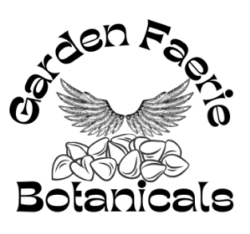Melissa officinalis
Lemon balm has a rich history dating back over 2,000 years. Native to the Mediterranean and parts of Asia, it was highly valued by ancient civilizations for its medicinal and culinary uses. The Greeks and Romans used it to promote relaxation and soothe digestive issues, while medieval European monks grew it in monastery gardens for its healing properties. It was a key ingredient in Carmelite water, a popular herbal tonic made by French monks in the 14th century. Throughout history, lemon balm has been associated with longevity, calmness, and even attracting bees—hence its Latin name Melissa, meaning “honeybee.” Today, it remains a cherished herb in herbalism, aromatherapy, and cooking.
How to Grow Lemon Balm (Melissa officinalis)
Lemon balm is easy to grow and thrives in a variety of conditions, making it a great choice for both beginner and experienced gardeners.
Planting
Sow seeds indoors 6–8 weeks before the last frost or direct sow outdoors after the danger of frost has passed. Press seeds lightly into the soil but do not cover, as they need light to germinate. Keep the soil moist, and seedlings should appear in 10–14 days.
Growing Conditions
Light: Prefers full sun to partial shade.
Soil: Well-draining, fertile soil with a pH of 6.0–7.5.
Watering: Keep soil evenly moist but not waterlogged. Once established, lemon balm is somewhat drought tolerant.
Spacing: Plant 12–18 inches apart to allow room for growth.
Care & Maintenance
Lemon balm is a perennial in USDA zones 4–9 and will return each year. Trim regularly to encourage bushy growth and prevent flowering, which can cause leaves to lose flavour. If grown in containers, repot as needed to prevent overcrowding. In colder zones, mulch in autumn or bring potted plants indoors for the winter.
Harvesting
Harvest leaves as needed, preferably before flowering for the best flavour. Cut stems just above a leaf node to encourage regrowth. Leaves can be used fresh or dried for later use.
These seeds are available directly from Garden Faerie Botanicals in the heart of British Columbia, Canada. The collection features heirloom and heritage seeds that are personally cultivated organically without the use of any chemicals. Emphasizing historical, rare, non-GMO seeds, this selection preserves biodiversity through open-pollination.








Reviews
There are no reviews yet.